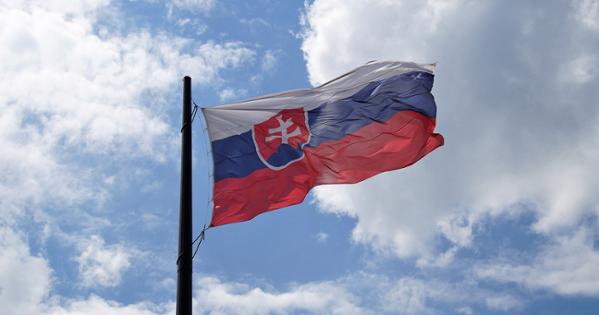Slovakia's Parliamentary Elections

Fico Returns to Power
Slovakia had parliamentary elections this September, in which former populist Prime Minister Robert Fico returned to power for fourth term with almost 23% percent of the vote. Last week, he formed a coalition with former party colleagues from HLAS-SD Peter Pellegrini and Andrej Danko from SNS. As a consequence of Fico’s election, the country may become more polarized, with weaker democratic institutions and a deteriorating human rights situation. On the international stage, it could lead to diminished military and humanitarian support for Ukraine, increased anti-EU sentiments, and a rise in isolationist tendencies.
Democratic Gains in Slovakia in the Last Five Years
In 2018, an investigative anti-corruption journalist Jan Kuciak and his fiancée were murdered in Slovakia, sparking the pro-democracy social movement "For a Decent Slovakia." Fico and his party SMER were involved in corruption and the erosion of democratic institutions that had contributed indirectly to the murder. This movement had unseated Fico, who had been the prime minister for 10 years until March 2018. Fico’s party lost the parliamentary election in 2020 to the catch-all anti-corruption party OLANO, led by Igor Matovič. While many questioned OLANO's democratic potential, they explicitly adopted a pro-Western stance and refrained from interfering with the murder investigation.
The widespread corruption in Slovak society and the backlash to the murder played a significant role in the election of Zuzana Čaputová in the presidential election of 2019. Čaputová, an environmental lawyer and program director of an anti-corruption NGO, advocated for progressive causes such as LGBTQIA rights. She consistently polled as having the highest level of trust among politicians in Slovakia during her tenure as president. After Russia’s reinvasion of Ukraine, Čaputová took a strong pro-Ukrainian stance while also showing support for Ukrainian refugees. Her ability to unite a polarized Slovak population, often divided by hate speech from politicians on social issues, was crucial during the challenges of the pandemic and the neighboring conflict.
Setbacks to Democratization and Fico’s Return
Shortly after 2020, Slovakia became embroiled in internal conflicts, both within its four-party coalition in power led by OLANO, and between Prime Minister Matovič and President Čaputová. The ineffectiveness of the cabinet in addressing various issues resulted in the cabinet losing the vote of confidence. Meanwhile, Fico's SMER party spread conspiracies accusing doctors of colluding with pharmaceutical companies and promoted anti-vaccine theories during the pandemic. In regards to the war in Ukraine, SMER adopted a pro-Russian stance in contrast to the foreign policy orientation of the government at the time, which garnered some public support among Slovaks. Thus, by capitalizing on the inefficiency of the cabinet and spreading disinformation on these two issues, SMER rebounded in the parliamentary polls.
As part of his return strategy, Fico launched a defamation campaign and employed hateful rhetoric against Caputova. This has led to Caputova receiving death threats, which she has cited as one of the reasons for her decision not to run for reelection. While the role of the President in Slovakia is mostly symbolic, the President helps the government navigate crises, as well as may counterbalance the prime minister and the cabinet on foreign policy. If Slovakia elects an anti-democratic candidate in the 2024 presidential election, there will not be a political figure who can check Fico on his populism in his domestic and foreign policy.
Domestic Opposition to Fico
The domestic democratic opposition to Fico has consisted of political parties which sought to challenge him in the parliamentary elections, such as the pro-EU Progressive Slovakia (PS), as well as civil society mobilization. PS has gained 18% of the vote, an improvement from its previous less than 7% record in coalition with SPOLU in 2020. Their campaign strategy focused on Slovakia's future, casting SMER as a party that represents Slovakia’s authoritarian past. By shifting their attention from fighting right-wing extremism to speaking to the issue of corruption in Slovak society at large, PS was able to challenge its image as a party that only caters to urban residents of Bratislava. This result gives hope that PS can transform into a party that builds broad coalitions across Slovakia and continues to grow as a viable challenger to Fico's government.
As for resistance from civil society, there has not been a broad based social movement that emerged to challenge Fico’s parliamentary campaign. The “Movement for a Decent Slovakia” that pressured Fico to resign in 2018 was the largest mass public movement for democracy in the country since the Velvet Revolution in 1989. The movement was highly active from March to May of 2018, and kept Fico and his party accountable in the public spotlight after the murder. However, it gradually lost momentum after Fico stepped down. The news of Fico’s election was also not met with any significant anti-populist backlash protests in the streets, as for example Trump’s election was in the US in 2016.
Transatlantic Relations
Fico may change his foreign policy position on the war in Ukraine once he assumes office, as he has been known to alter his stance on foreign policy issues in the past. However, it is important to note that Fico suffered a significant political defeat in 2018 and has exhibited a level of radicalism in his rhetoric that was not previously observed. According to journalist Martin M. Šimečka, the position of Prime Minister would also provide Fico and some SMER officials with a shield against investigations into their alleged involvement in Kuciak's murder and other corruption cases. If Fico believes that his political victory was a result of his anti-Ukrainian positions, he may feel emboldened to implement them as policies to avoid another loss of power.
There is a possibility that Fico’s coalition will support his anti-Ukrainian stance. To protect Slovak democracy, It will be crucial to elect a president who can counterbalance the coalition on its foreign policy and alert domestic and international audiences about their anti-democratic moves. Furthermore, a sustained effort to increase the capacity of civil society and support existing grassroots efforts is necessary, both to bolster Slovak democracy and to hold the Fico government accountable. This should be accompanied by continued efforts to build PS as a viable political alternative for the next election. IIt is also possible to enhance transatlantic cooperation by building partnerships with pro-NATO governments in the region, such as those in the Czech Republic, as well as in Poland, where potentially a liberal government may be formed in the coming weeks.
About the Authors

Anastassiya Perevezentseva is a doctoral candidate at the School of International Service at American University who conducts research on democracy and social movements.
Views presented in this article are those of the authors, and do not represent the official policy or position of the Iacocca International Internship Program, Iacocca Institute, or Lehigh University.

Jan Vachal is a master’s student of political science at Comenius University in Bratislava.